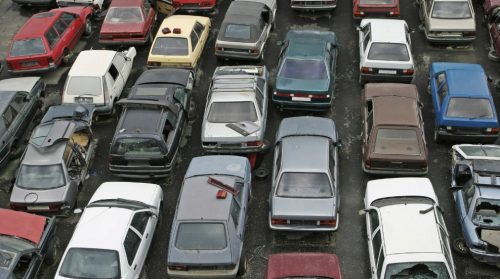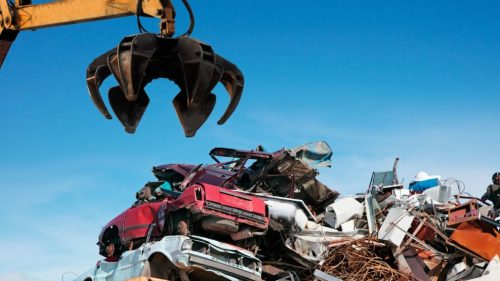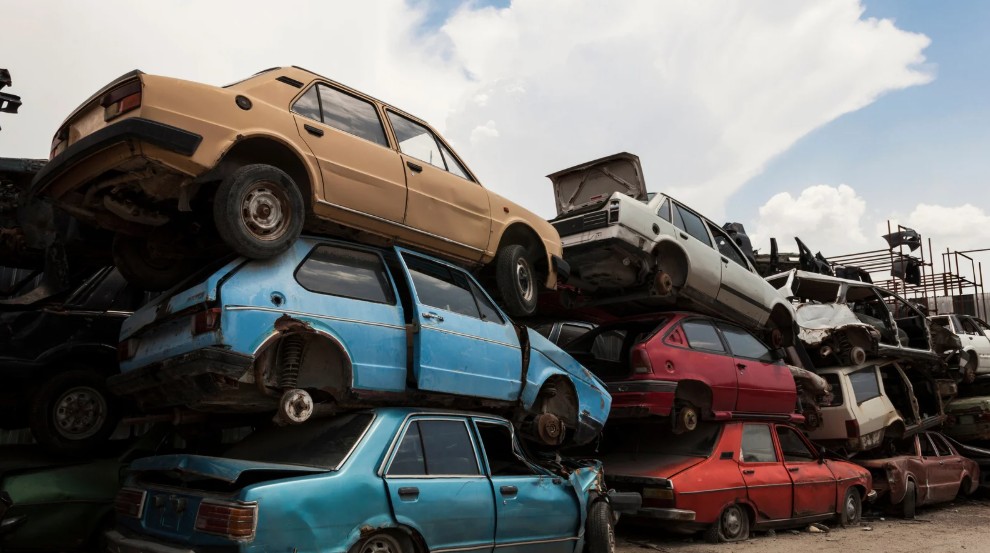Table of Contents
The world of cars is changing. We’re all talking about electric vehicles (EVs), and the way we buy and sell cars has been shaken up by Brexit.
But have you ever wondered what all this means for the end of a car’s life? What happens when these new-fangled electric cars get old? And how has Brexit affected the good old-fashioned scrapyard?
Here’s the thing: the car scrapping industry is going through a massive shift. It’s not just about crushing old petrol cars anymore. There are new challenges and new opportunities. This guide is all about that. We’re going to look at what the future holds for car scrapping in the UK.
What Does the Future of Car Scrapping Look Like in the UK?
The Electric Shock: What Happens to Old EVs?

Electric cars are brilliant. They’re quiet, they’re clean, and they’re cheap to run. But they’re also a completely different beast to a traditional car. And that’s causing a bit of a headache for the recycling industry.
The biggest challenge is the battery. An EV battery is a huge, heavy, and complex piece of kit. It’s full of valuable materials like lithium and cobalt, but it’s also highly flammable and contains some nasty chemicals. You can’t just chuck it on a scrap heap.
Here’s the problem: at the moment, we’re not very good at recycling EV batteries. The process is complicated and expensive. A lot of the time, the batteries are just shredded, and only a small amount of the valuable materials are recovered. The rest just goes to waste.
But there’s a lot of work being done to change this. Companies are investing millions in new technologies to recycle EV batteries more effectively. The goal is to create a ‘closed loop’ system, where the materials from old batteries can be used to make new ones. This would be a huge win for the environment.
And it’s not just about recycling. There’s also a lot of talk about ‘second life’ batteries. This is where a battery that’s no longer powerful enough for a car can be used for something else, like storing energy from solar panels in a house. It’s a great way to get a bit more life out of them before they’re finally recycled.
The Brexit Effect: A Spanner in the Works?
Leaving the EU has had an impact on almost every industry in the UK, and car scrapping is no exception. For years, the UK has been a major exporter of scrap metal. A lot of the metal from our old cars would be sent to countries like Turkey and India to be melted down and reused.
But Brexit has made this more complicated. There’s more paperwork, more checks at the border, and more delays. This has made it more expensive to export scrap metal, which has had a knock-on effect on the prices that scrapyards can pay for our old cars.
It’s not all bad news, though. Some people think that these challenges will force the UK to become more self-sufficient. Instead of sending our scrap metal abroad, we’ll have to invest in our own facilities to process it here.
This could create jobs and be better for the environment in the long run, as it would reduce the carbon footprint of shipping metal all over the world.
A Greener Future for Scrapping

It’s not just about EVs and Brexit. The whole car industry is under pressure to be more environmentally friendly. And that’s having a big impact on how cars are made and how they’re scrapped.
Car manufacturers are now being encouraged to think about the end of a car’s life right from the design stage. They’re using more recyclable materials and making it easier to take cars apart. This is all part of the move towards a ‘circular economy’, where we try to reuse and recycle as much as possible.
The UK government is also pushing for this. They’ve set some tough targets for car recycling. By 2025, they want 95% of a car’s weight to be reused, recycled, or recovered. This is forcing the scrapping industry to get its act together and find new ways to recycle more of the car.
What Does This Mean for You?
So, what does all this mean for the average car owner? Well, in the short term, you might not notice much of a difference. You’ll still be able to scrap your car in the same way you always have.
But in the long run, things will change. When you come to scrap your electric car in ten years’ time, the process will be very different. You’ll be dealing with specialist recyclers who know how to handle the batteries safely. And you might even get more money for it, as the valuable materials in the battery will be in high demand.
The future of car scrapping is all about being smarter and greener. It’s about seeing an old car not as a piece of rubbish, but as a valuable resource. It’s a big challenge, but it’s also a huge opportunity to create a more sustainable future for the car industry.




